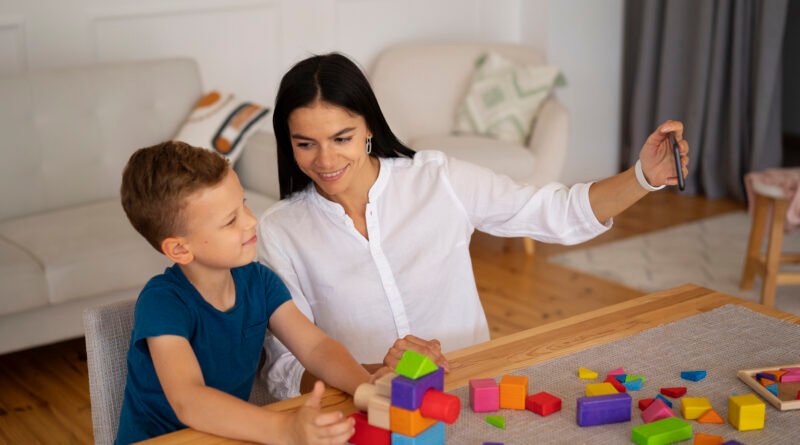What is Play Therapy: Benefits for Children & Adults
Play therapy is one of the most effective ways to help children communicate and heal when words fall short. It is often described as a child’s natural language, where toys and creative activities become their words. When children face emotional, behavioral, or developmental challenges, traditional talk therapy may not always be effective. That’s where play therapy makes a difference, allowing children—and even adults—to express themselves in a safe, engaging, and supportive environment under the guidance of a trained professional.
What is Play Therapy?
Play therapy is a therapeutic approach that uses play as a medium to help individuals explore their emotions, resolve conflicts, and develop healthier coping skills. It is widely used in child and adolescent therapy, but adults experiencing trauma, anxiety, or depression may also benefit from it. A trained child counsellor or teen therapist guides the process, ensuring the activities are purposeful and designed to improve psychological well-being.
Therapy can incorporate different modalities, including cognitive-behavioral therapy (CBT), storytelling, art, sand play, role-playing, and guided games. These techniques encourage expression, problem-solving, and healing in ways that feel natural and non-threatening.
Benefits of Play Therapy for Children
Children often lack the vocabulary to express complex feelings such as fear, sadness, or anger. Therapy bridges this gap by offering tools for self-expression and emotional growth.
1. Emotional Regulation
Therapy helps children struggling with aggression, self-harm, or bullying to learn healthier ways to manage their emotions.
2. Improved Self-Esteem
Through positive reinforcement and creative exploration, children develop confidence, resilience, and a stronger sense of identity.
3. Support for Neurodevelopmental Conditions
For children with ADHD, Autism Spectrum Disorder (ASD), or learning disabilities, play therapy fosters focus, communication, and social interaction. Special techniques like structured play and sensory activities are used to address developmental needs.
4. Mental Health Support
Children experiencing anxiety, depression, or trauma find therapy a safe outlet to process their emotions. It helps them build coping strategies and resilience.
5. Behavioral Improvements
By addressing underlying emotional struggles, therapy reduces challenging behaviors, making it easier for children to thrive at school and at home.
Play Therapy for Adults
Adults can benefit from play therapy, despite it being most frequently linked to children. Play-based interventions help break down emotional barriers, making it easier to confront past trauma or current struggles. Adults dealing with substance abuse, unresolved grief, or stress-related disorders often find creative expression therapeutic.
Play Therapy for Autism and ADHD
For children on the Autism, play therapy encourages communication and social interaction. Techniques like structured role play and sensory activities can reduce repetitive behaviors and improve adaptability. Likewise, play therapy improves emotional awareness, focus, and impulse control in kids with ADHD. It helps them channel energy productively while reinforcing positive behaviors.
Addressing Serious Concerns
Play therapy is particularly useful in sensitive cases involving:
- Self-harm tendencies
- Behavioral issues like aggression
- Effects of bullying on self-esteem
- Substance abuse risk in teens
In such scenarios, child and adolescent therapy combined with parental involvement ensures effective results.
Online Counselling and Accessibility
With today’s digital advancements, many families now have access to online counselling. Parents searching for “play therapy near me” can connect with licensed child counsellors or teen therapists virtually. This option provides flexibility and comfort, especially for children who feel more at ease in their home environment.
Role of Professional Clinics in Play Therapy
For the best outcomes, it’s essential to seek therapy from trusted professionals. Clinics such as TalktoAngel and Psychowellness Center, two of the best mental health wellness clinics in Delhi, specialize in child and adolescent counselling in Delhi. They provide evidence-based interventions, including cognitive-behavioral therapy combined with play techniques, ensuring holistic support for children and families.
These clinics not only provide play therapy but also a wide range of psychological services for concerns like anxiety, depression, learning disabilities, and neurodevelopmental challenges. Parents can consult a child counsellor or a best psychologist in India to determine the best treatment plan.
Conclusion
Play therapy in India is more than just play—it is a bridge to healing, growth, and self-discovery. Whether a child is coping with ADHD, autism spectrum challenges, bullying, or emotional struggles like anxiety and depression, this therapy provides a safe space for recovery. Even adults can benefit, especially when dealing with trauma, self-harm, or substance abuse.
With expert guidance from trained professionals at leading clinics like TalktoAngel and Psychowellness Center, play therapy can transform lives. If you are searching for effective child and adolescent therapy or wondering “play therapy near me,” professional help is just a call away. Through compassionate care and innovative approaches, play therapy continues to empower children, teens, and adults to build resilience, confidence, and lasting well-being.




